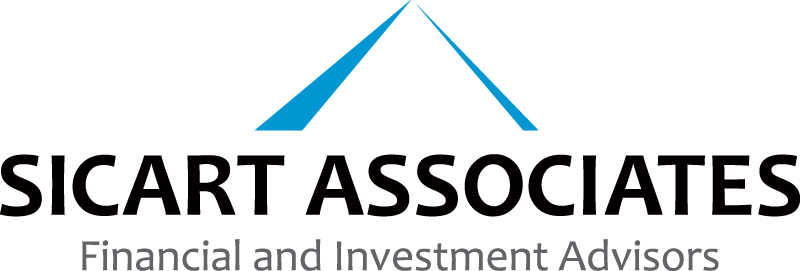Beyond The Headlines
The Art of Cashing Out
With stocks at all-time highs, some tech IPOs falling short of expectations, and one huge IPO spectacularly imploding before take-off, some investors may be wondering if there is an art to cashing out. This may be a good time to look at two examples from twenty years ago, during the Internet Bubble.
Two decades ago, many companies went bust, but there were two with shockingly different stories. One had its founder sell all, hedge, and safely make it through the 80% Nasdaq drop. The other painfully watched his company’s stock price fall a whole 95%!
The first one was an Internet radio company, Broadcast.com, which was sold to Yahoo for $5.7 billion on (not a joke) April Fool’s Day 1999. It made Mark Cuban a billionaire. The catch was that Cuban was paid in shares of Yahoo. But at that point, rather than attempting to keep up with new market highs, he was growing increasingly cautious about the market. As he told Fast Company in 2002: “After we sold Broadcast.com, I hedged my stock with synthetic indexes, in case the market cratered in the six months before I could hedge my actual Yahoo shares.” The Internet bubble peaked in January 2000. Broadcast was discontinued by 2002. Cuban is still a billionaire.
The second company was an online book retailer, Amazon.com. Its founder Jeff Bezos wrote a shareholder letter after the bubble burst, and opened it with one word: “Ouch.” From the top to the bottom, the Amazon stock price fell $100 per share – from $106 to $6! 95% of shareholders’ wealth vanished. Amazon’s story could have ended right there, but the business was saved by a now-forgotten last-minute deal that raised enough cash one month prior to the crash to give Amazon a cushion to survive the following years. Shareholders, however, had to wait a whole decade to see Amazon’s price return to 1999 levels.
At Sicart, our investment approach is to buy good businesses at the right price, and hold them for the long run. We know that all stocks can become inflated beyond their real value, and that worthless businesses can attain exorbitant prices. Public markets succumb to unbelievable swings from fear to greed and back, but they also exhibit sobering judgment at times. WeWork’s recent failed IPO attempt is a prime example. A money-losing office-rental business disguised as a tech company was valued by some as high as $90 billion. In its last round of financing it reached a valuation of $47 billion — and is now hoping for a bailout at way below $10 billion. Some claim it’s worth nothing at all. Quite a fall, in a matter of weeks!
While we don’t believe that all companies are so drastically overvalued, we do think some will struggle to grow into their current valuations. Many employees, especially early employees of those companies, are sitting on substantial wealth created in an unusually short time. It is something worth celebrating, but it can also be a source of a serious worry.
With stocks at all-time high, we see a new peak in insider sales. Jeff Bezos made the biggest sales to date of his Amazon shares this summer. Bezos learned the hard way what a round trip from zero to a hundred and back feels like, and he clearly doesn’t want to go through that again. Facebook’s Mark Zuckerberg has cashed out billions in the last two years. Uber founder Travis Kalanick sold a fifth of his stake days ago, as an investor lock-up expired last week. They are not the only ones cashing out; total insider sales are the highest since 2006, a year before the last bull market peaked.
The more insiders are selling, the more passive index funds are buying as the free float increases, and more shares become available to the public…wait! When insiders take money off the table, the public investors (through passive index funds) put more of their hard-earned savings on the line? That’s exactly right!
As investment advisors to families and entrepreneurs managing multi-generational wealth, we are frequently asked about the risks associated with having all of one’s wealth tied up in a single stock. Wealth creators enjoying life-changing fortunes start to plan ahead. They instinctively know what we have learned through our experience as investment advisors – making money and keeping it are not the same thing!
Our advice is always the same: we can’t call the top or the bottom of a single stock or of the market as a whole. However, our decades of experience help us discern to which end of the range we are closer. If your whole wealth is tied up in a single (possibly inflated) stock or an inflated stock market or sector, it could be wise to emulate Mark Cuban and other insiders and gradually take some money off the table.
We are all celebrating market highs, but we might be acting on them in different ways. Some investors are chasing new highs while others are stepping aside — so there is an art to cashing out after all!
Happy Investing!
Bogumil Baranowski | New York City
Published: November 21st, 2019
Disclosure:
This article is not intended to be a client‐specific suitability analysis or recommendation, an offer to participate in any investment, or a recommendation to buy, hold or sell securities. Do not use this report as the sole basis for investment decisions. Do not select an asset class or investment product based on performance alone. Consider all relevant information, including your existing portfolio, investment objectives, risk tolerance, liquidity needs and investment time horizon. This report is for general informational purposes only and is not intended to predict or guarantee the future performance of any individual security, market sector or the markets generally.

